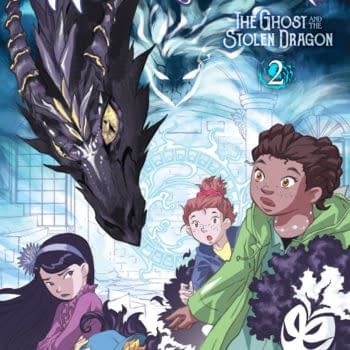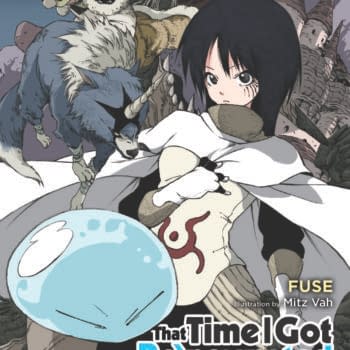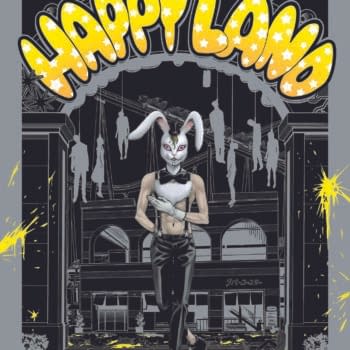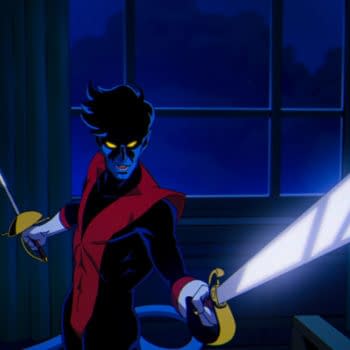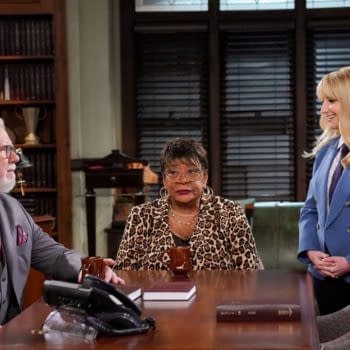Posted in: BBC, TV | Tagged: bbc, david tennant, doctor who, jodie whittaker, russell t davies, steven moffat, sylvester mccoy, tom baker
Doctor Who: When Companions Depart – Sad Endings Taken for Granted
Companions leaving Doctor Who are sad farewells we sometimes take for granted, expressions of the evolving state of television storytelling.
The BBC has released a compilation video of Doctor Who companions' departures. The Doctor's companions always leave. It is always sad, a sign of the fleeting nature of everyone's time with The Doctor. We expect them. They are inevitable, and we take them for granted. There is a difference between the way they were done in the classic show and the new show, though.
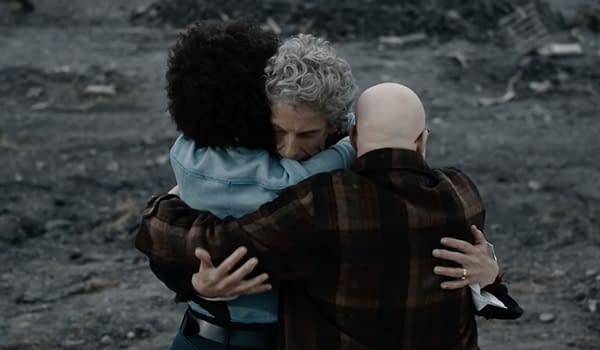
In the 1960s and 1970s, most screenwriters were men, and for men, feelings and emotions were embarrassing. They're British, after all. This was a sign of how repressed the British were known to be. When the Doctor's companions left, there was sadness, but it was suppressed as much as possible, written, and played as subtext. Just look at the earliest departure in the video, Sarah Jane (Elizabeth Sladen) leaving and the Fourth Doctor (Tom Baker) barely able to look at her. Scriptwriters were also a bit more haphazard about character moments, often treating them as optional or arbitrary. Sylvester McCoy recently revealed in an interview that the producers weren't even going to bother to write a farewell scene for Mel (Bonnie Langford), and he had to fight them to get one. You'd think a farewell scene was obligatory. Modern showrunners know that now because television storytelling has shifted – shows are founded on characters audiences want to invest in emotionally, and in the post-Buffy era, emotions have trumped the British stiff upper lip.
Thus modern showrunners like Russell T. Davies, Steven Moffat, and Chris Chibnall know that any flaws in the storytelling can be forgiven if they can deliver an emotional whopper, and Davies and Moffat are masters at that. They dialed up the love between Doctors and Companions to an elevated level. Hugs all round! It's all about the hugs now. Davies opened the door with the forced separation of the Tenth Doctor (David Tennant) and Rose (Billie Piper). Martha Jones (Freema Agyeman) leaves because of her unrequited love for the Doctor. Chibnall depicts the dissolution of The Doctor's (Jodie Whittaker) fam as as family drifting apart, though Chibnall seems to be closest to a 1970s TV writer and seems most embarrassed by emotion, going so far as to keep the Doctor's romance with Yaz (Mandip Gil) as reluctant and chaste as possible. Moffat is the one who elevated departures as grand operatic moments of heartbreak.
This is how Doctor Who represents the changing tones and impulses of TV storytelling. As a long-lived show, it witnesses and shows those changes.



